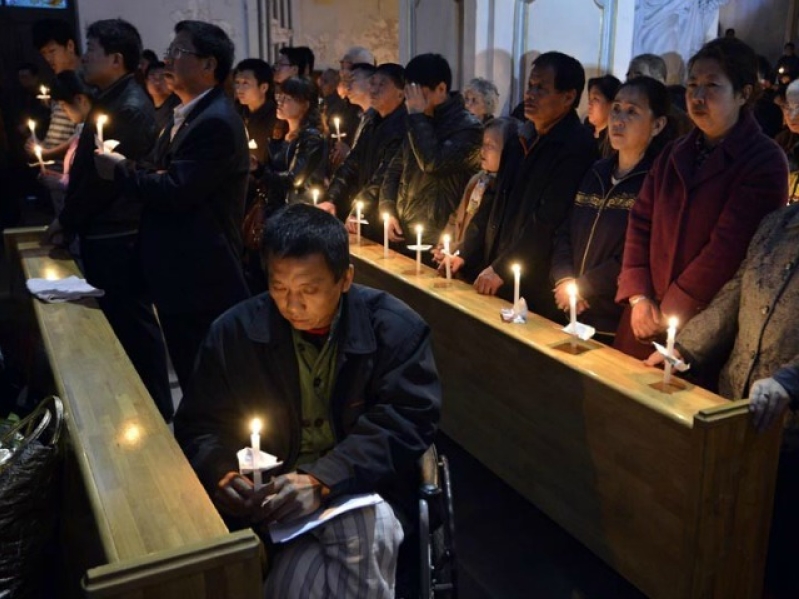
About 40 house church pastors gathered for a "Unity in Christianity" event were locked in a room and questioned by authorities, who broke into the building and accused the pastors of "participating in illegal gatherings without government permission".
According to persecution watchdog China Aid, 100 public security officers and special police, accompanied by several patrol cars, broke into the building, located in China's northeastern Liaoning province, back in April. At the time of the raid, dozens of pastors from house churches across China were gathered for an event hosted by Pastor Guo Pingxi from Kunming, Yunnan.
While three pastors were taken away immediately, the rest were locked in a room and questioned both in groups and individually. The raid and process of interrogations lasted several hours, and the pastors were accused of participating in illegal gatherings without government permission.
Guo, who was previously targeted by authorities in November of 2014, was accused of belonging to a foreign anti-China group, an accusation that the attendee called "ridiculous."
"We refuted that because Pastor Guo is Chinese, himself," the pastor said, "how could he be part of a foreign anti-China group? The government is afraid of Pastor Guo's advocacy for the unity of Chinese house churches."
In China, churches must be legally registered with their local governments, which this can only happen through the Protestant Three-Self Patriotic Movement or the Chinese Catholic Patriotic Association.
Underground or unregistered churches are technically illegal in the country, and are thus often subject to raids and other forms of intimidation by local authorities. In some areas, local governments have shut down unregistered churches, citing such regulations.
Nevertheless, Ian Johnson, author of The Souls of China: The Return of Religion after Mao, says China is in the grip of "one of the world's great spiritual revivals" that shows no signs of slowing down.
"The decades of anti-religious campaigns that followed the 1949 communist takeover are giving way to a spiritual transformation-and among the fastest-growing drivers of that transformation are unregistered churches," he wrote in a recent op-ed for The Atlantic,
He added that despite persecution, unregistered churches have "become surprisingly well-organized, meeting very openly and often counting hundreds of congregants."
"They've helped the number of Protestants soar from about one million when the communists took power to at least 60 million today," he said.
Johnson's findings corroborate those of Fenggang Yang, a professor of sociology at Purdue University and author of Religion in China: Survival and Revival under Communist Rule. Last year, Yang told The Telegraph that the number of Christians in Communist China is growing so steadily, that by 2030, it could have more churchgoers than America.
Similarly, a 2016 report from ChinaAid revealed that a total of 20,000 Chinese Christians suffered religious persecution in 2015 - but Christianity continues to grow at a dramatic rate.
"In 2015, ChinaAid documented 634 cases of persecution in which 19,426 religious practitioners were persecuted, representing an 8.62 percent increase from 2014's 17,884 religious practitioners persecuted," reads the "2015 Annual Report Chinese Government Persecution of Christians and Churches in China."







